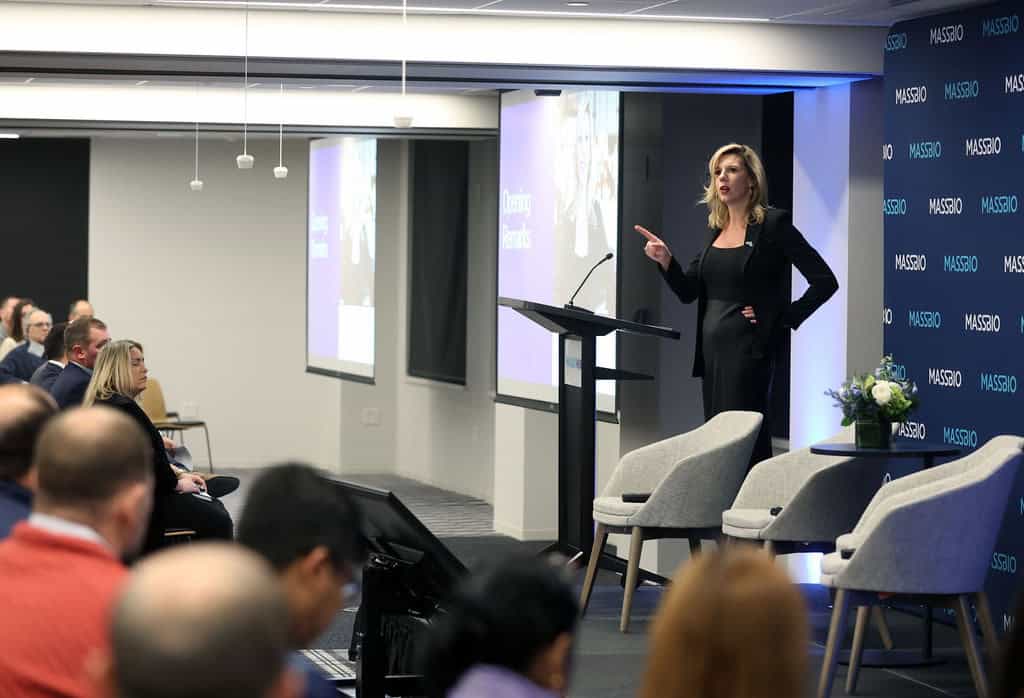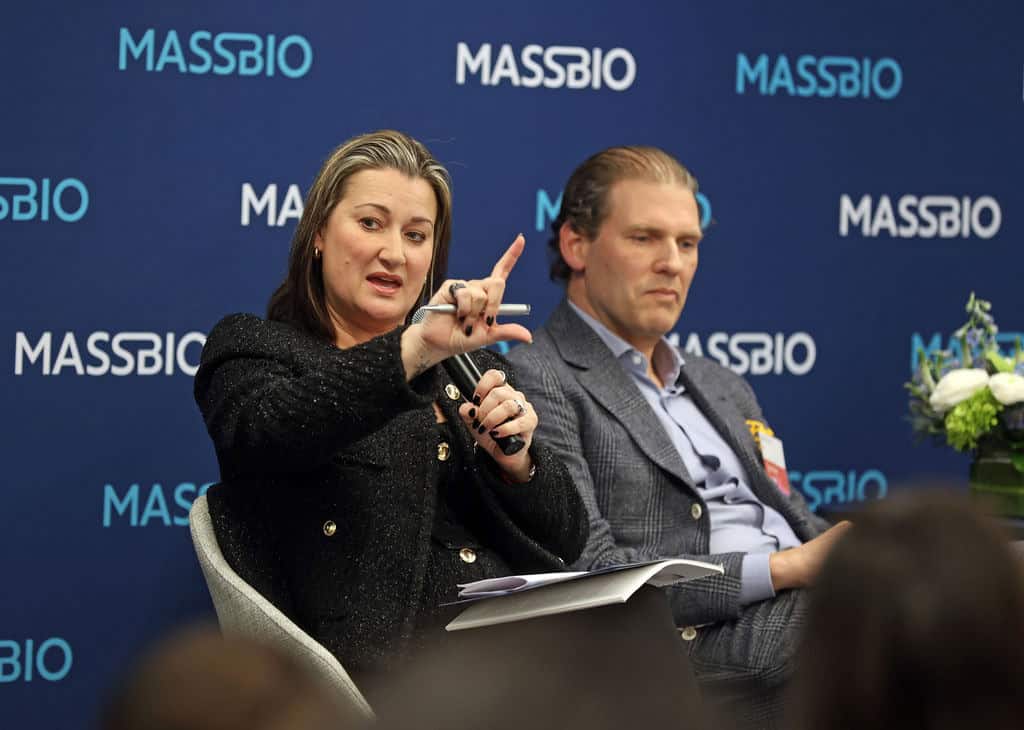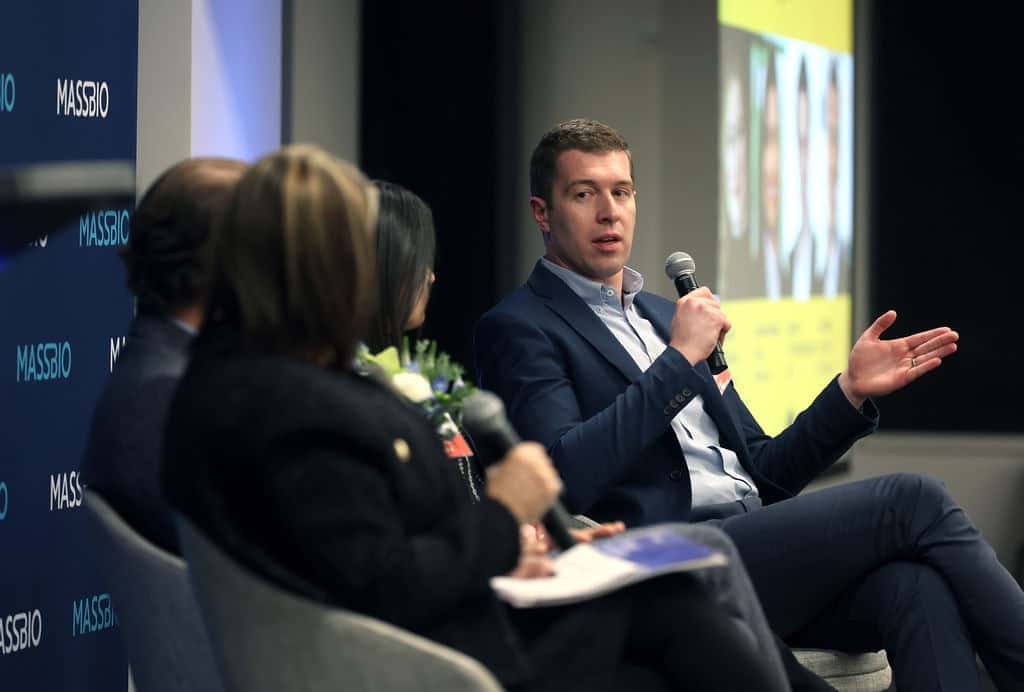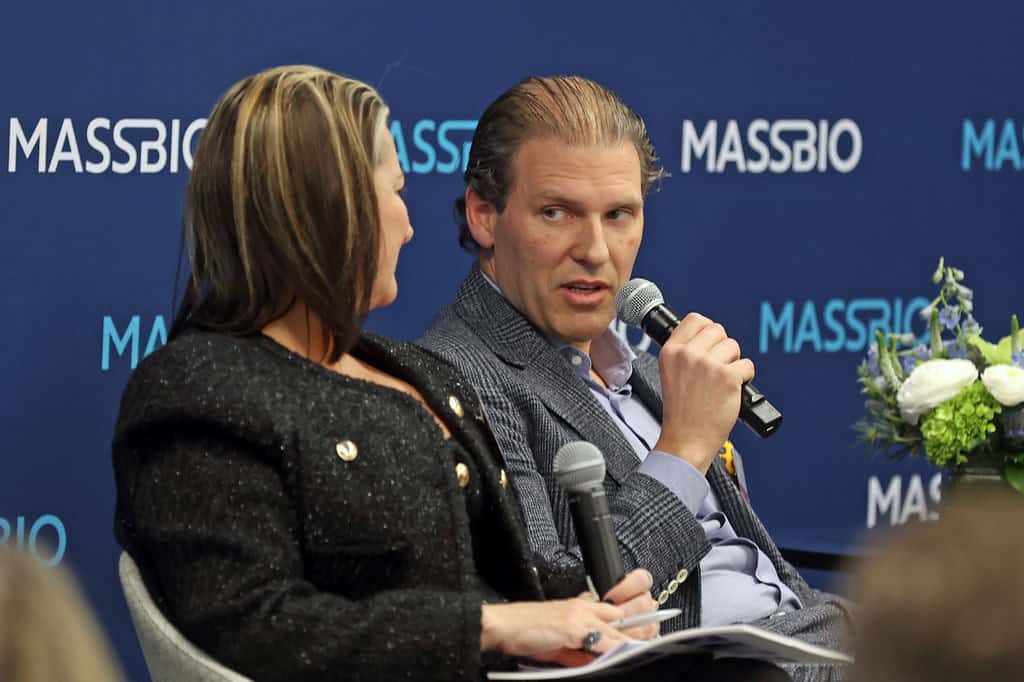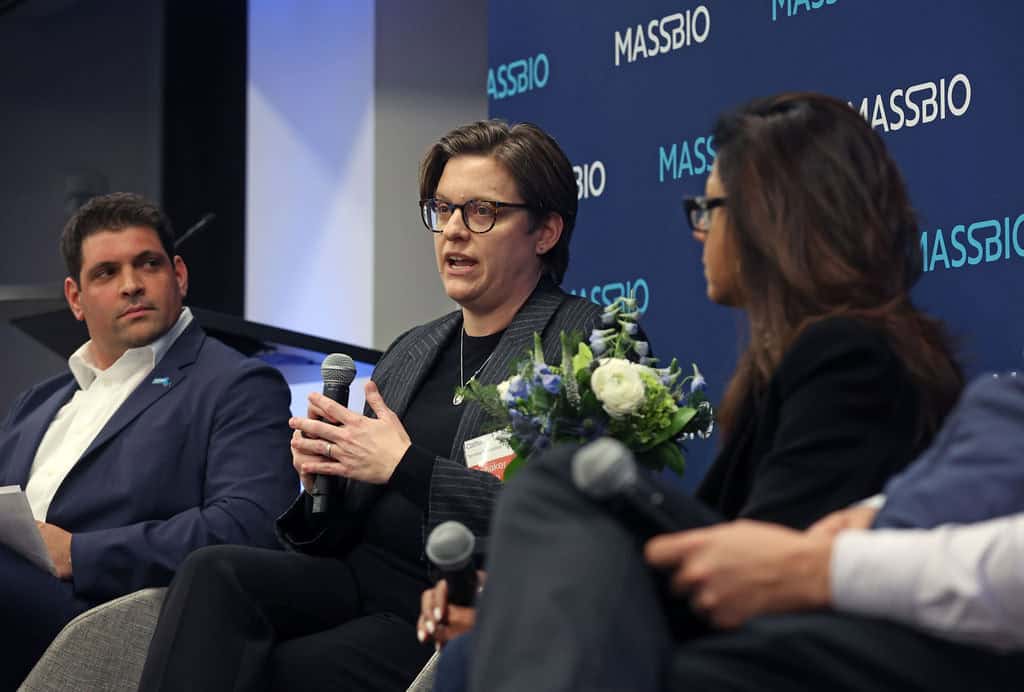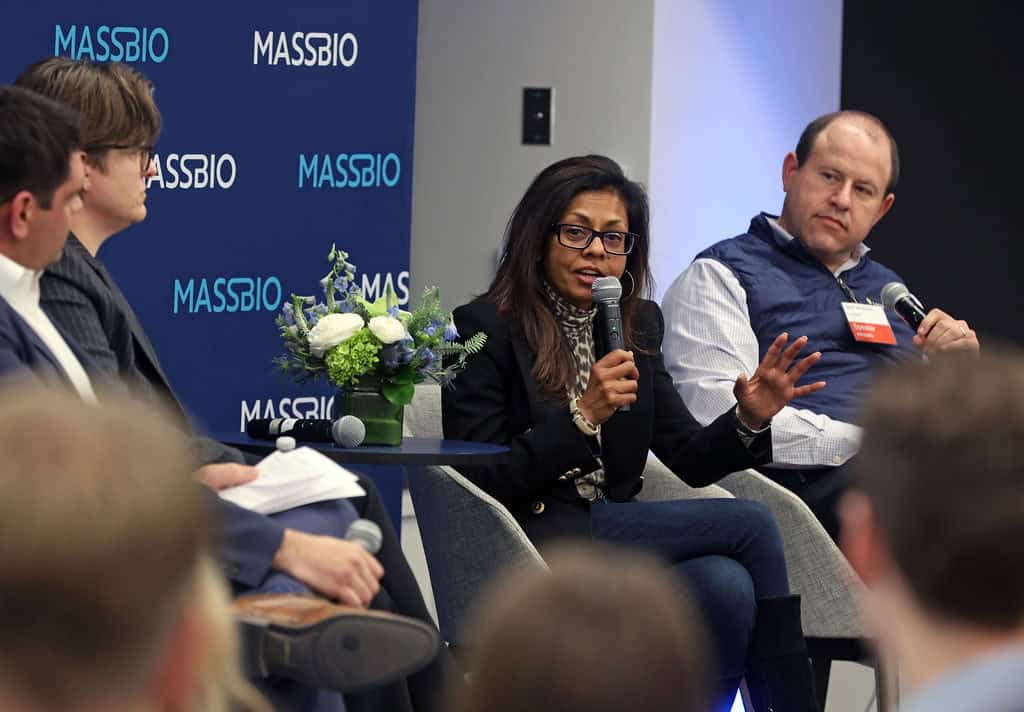
When asked to describe the vibe at this year’s J.P. Morgan Healthcare Conference in San Francisco, panelists at the 2025 MassBio Economic Outlook Forum used phrases like “a bit skeptical, but optimistic in the end,” “cautious optimism,” and “active.” Perhaps Locust Walk’s Geoff Meyerson put it best when he said that although the major deals were not as many, “the meetings were very, very productive.”
What they’re thinking
- There is no shortage of new innovation or new science, said Katie Bodner Spielberg (5AM Ventures), pointing out that they have the most dry powder they’ve had for investment in early-stage therapeutics and tools development companies in a long time.
- But their diligence has a large clinician element: How will you use it? What’s wrong with the current standard of care? How are you incentivized to prescribe the drug?
- For Locust Walk’s Meyerson, he’s feeling “increasingly optimistic” after being quite bearish for the last three years. He attributes interest rate cuts, a welcome change at the Federal Trade Commission (FTC), and an expectation of “pro-growth policies” with the new White House.
- “There’s a lag. So, I do think it’s still going to be challenging-ish, but it’ll gradually open up as the year goes on.”
- Maha Radhakrishnan (Sofinnova Investments) based her optimism on seed funding being available as long as there’s innovation and a differentiation strategy in mind … “you don’t always have to be first in class, but you can think about being best in class.”
And on the science
- Many in the room were happy to hear Jim MacKrell of Lilly Ventures share that Lilly has an appreciation for new targets. While still a risky area, “we’re more actively thinking about how we engage and explore new targets.”
- On the therapeutic side, not surprisingly, it is the game-changing medicines targeting a really high unmet need for patients that investors are most eager to fund, said Bodner Spielberg.
No place like home
Most of the panelists spoke about the advantages of being in Massachusetts. In Meyerson’s opinion, though there’s a lot of activity coming from China, the true innovation is here. “I’m proud to be a citizen of the Commonwealth, and that’s where you need to be.”
- Bjorn Koch (UBS) offered up that there will continue to be an innovation premium, and China might be able to do certain things, but they’re not going to be able to innovate like Cambridge, Boston, or San Francisco.
For Catharine Smith, who works every day with first-time CEOs at The Termeer Foundation, what sets Massachusetts apart from the rest of the world is the people. It’s not just the IQ of the people, but there’s a culture of innovation that happens here and a desire to try to “make a pie bigger for everyone” rather than divide it up. “It’s a lot more fun, and it’s a lot better for patients.”
- Smith says future success will absolutely depend on continued investment through the Massachusetts Life Sciences Initiative.
- In a hat tip to the “CEO & Founder Link” that MassBio and The Termeer Foundation have launched, Smith said a focus is knitting together the right environment to social pharma and other potential partners with first-time CEOs. “How can we ease up those transactions a little bit better, the networking part of the transaction.”
What’s next and exciting
- For Bodner Spielberg, quantum computing is much more than buzzwords. In the next three years, she expected that it could fundamentally change how the industry is doing structure-based drug discovery. She also sees AI being leveraged more around clinical trial design and selection versus pure discovery. (Suggestion: Companies need to be hiring talent now in this space.)
- It’s the ‘picks and shovels’ of manufacturing where Lilly Ventures’ MacKrell sees growth and investment happening for two reasons: making sure we can supply the medicines we want, and the U.S. separating itself by having the ability to make drugs domestically.
- “I’m looking forward to a comeback,” Meyerson said. “And I will tell you, just because we say that it has to come back doesn’t mean it will. You can be down for even longer. So, I’m excited to come back, and I think dealmaking is going to lead us out.”
- Smith zeroed in on women’s health, and where there’s truly unmet need for large sectors of the population. She sees this space where there’s a lot to learn, a lot to develop, and a lot of opportunity to build “really cool companies.”
Advice for the early-stage founders
Radhakrishnan encouraged founders in the room to put their competitive hat on and think about ways to differentiate very early on with target product profiles, even at the seed stage, because this will get them to the best program to a development candidate and then move it further along.
Meyerson echoed the sentiment: if you do not have a development candidate, you will not be able to raise Series A financing. Period. “Make sure that whatever you’re doing with that Seed, you can get to a development candidate.”
- If you don’t have a development candidate, Meyerson says you have two options: 1) Figure out how to get your translational medicine funded with enough funding to get to a development candidate, or 2) Don’t start the company until the academic program gets further along and then wait until you have enough data to get the company launched.
While biotech operators have control over a lot of things, interest rates aren’t one of them, so Koch from UBS said just forget about them. Instead, focus on execution and finding viable paths to keep your companies going right in a capital-efficient way, with other alternatives in place beyond going public via a traditional IPO.
No one works directly with more CEOs than Smith and The Termeer Foundation, and for her, it’s not just about your network being “high value” and “values-aligned,” but how are CEOs accessing and leveraging it. “Who do you call when your pitch deck sucks? Right? Who do you call when you’ve had the worst day of your life?”
Final thought
There is always a bit of wishful thinking and educated guessing when asked to predict the undulation of the economy for an entire year. Looking back on the past 12 months can give you clues, especially if clear trends emerge. Anecdotal “vibe checks” from a large conference are less useful, but can set a short-term tone. Add in a wholesale change in the philosophy and agenda of the federal government, and perhaps only fools should try to play prognosticator.
But those starting companies, with development candidates in the clinic, and looking for exits need something, and that’s why MassBio brought in these experts to give their best guess on what’s ahead, and what signals to watch.
MassBio certainly wants the comeback that Geoff Meyerson anticipates and subscribes to his increasing optimism. We’re pumped to hear Jim MacKrell and Lilly Ventures talking about expanding biomanufacturing capacity, and Katie Bodner Spielberg and 5AM Ventures talking up AI and quantum computing (both align with MassBio’s Vision 2030 plan). We’re not sure exactly what is in store for funding, especially the Seed-variety, but again, we’re hopeful.
One thing we can all agree on is that this year will be another banner year for Massachusetts companies pushing the boundaries of what’s possible to respond to the unmet needs of patients around the world.
